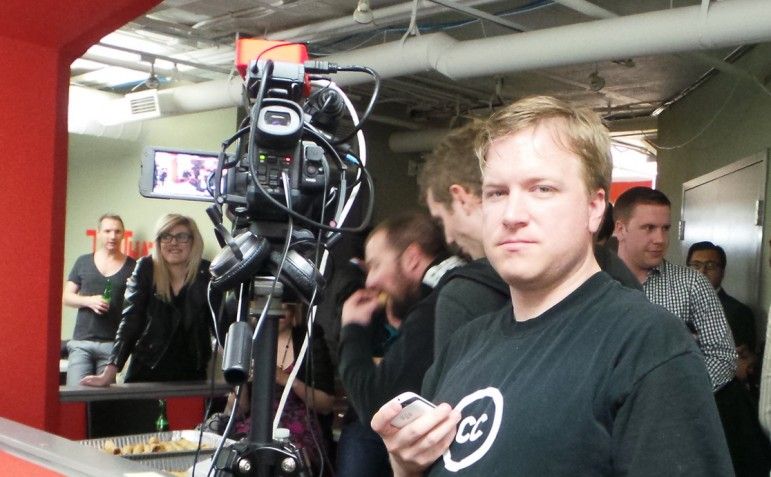The video camera I bring into public meetings isn't about the politicians, it's about me.
Let me explain, before you dismiss me as a narcissist.
The camera holds me to account, it makes my journalism better - not only because I can look at the tape and make sure I'm accurately capturing a meeting, but because others can too.
I've been asked many times, what's the greatest challenge to my work trying to be part of the solution to the collapse of local journalism: Being Alone.
I'm alone in so many ways. I'm a one-man newsroom and media company - I don't have an editor.
That's a big one, and something I wish upon no other journalist.
The reality is that if we're going to fix local journalism, some of us are going to have to go first, and that means trying to be your own editor, something none of us is capable of doing.
Not having an editor means I have to create other systems of accountability. (Frankly, we've seen so many failures of journalism under editors that even having one isn't a fail-safe on its own)
Videotapes are one system. They deputize the public as media watchdogs, able to hold me to account.
I can't spin the facts, the video shows the facts. My commentary and analysis must be supported by the videotapes. If the video doesn't support my interpretation, you - my public editors - will hold me to account. (And you thankfully have.)

The video doesn't just hold me accountable to an ethical practice of journalism, it also holds me accountable for covering the stories that happen in front of the camera.
The public gets to judge my news judgment. If I fail to report a major story or happening at Council, say in favour of something less newsworthy, or I ignore stories in pursuit of a nefarious agenda, the videos will reveal this.
Note, this is different from the times I don't cover one meeting that is being covered by other media outlets in favour of a meeting with lower interest that no one else is covering. I trust other journalists to provide those stories, and part of my mandate to improve civic information involves going to the seemingly 'unimportant' meetings instead of producing pack journalism.
The camera also empowers the public to be my editor by catching when I "bury the lede" or completely miss it.
I love telling the story of how I completely missed a story in 2008.
It was last day the Legislative Assembly was sitting that December, the York University strike was dragging one without any end in sight, and I went to scrum the government over what they planned to do with both sides deadlocked, students facing financial stress, and the academic year potentially at risk.
As a higher education reporter, this was an important story to my readers. I had been sick for days, I suspected food poisoning. (Before you give me any sympathy, I had ate at sketchy restaurant while intoxicated that weekend.)
Not yet 100%, I went to Queen's Park, scrummed the Minister of Labour, thought I didn't have a story, and wrote as much in the story I filed. I always uploaded full audio recordings of scrums, it was a "bonus" feature for those hardcore readers who followed my blog.
I boarded the GO Train back to Hamilton, expecting to rest, and looked at my email. There was a comment from a loyal reader "Joey, know you are not 100%, but re-listen to the third minute of your audio, you missed the Lede."
Sure enough, I had completely missed the Minister making an honest statement in what I thought was nine minutes of non-answers.
That answer was important to my readers, and had I not posted the audio, they would've never known the story. This moment changed my view of 'dumping' raw audio onto the internet. It was no longer a throwaway extra, it is an essential part of good journalism.
This moment was the catalyst towards my practice of open journalism. I happen to be the professional journalist, but I'm not forced to be a gatekeeper. Together, we can endeavour to inform each other and the wider public.
I'm human, I make mistakes. I miss things. The camera makes me more vigilant, more mindful, and a better journalist.
Sure, it's pointed at the politicians of Hamilton City Council and they don't like it.
It's just as much pointed at me, and the public is better served by its being in the Council Chamber.
